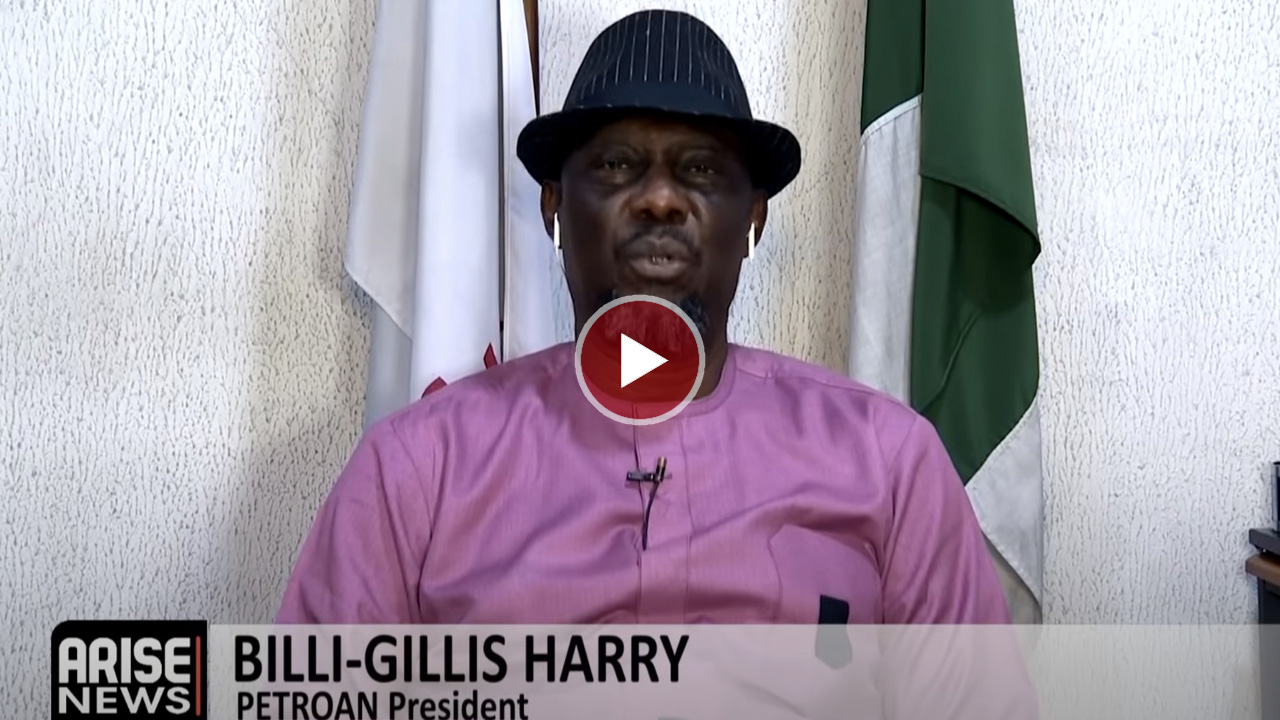

President of the Petroleum Retail Outlets Association of Nigeria (PETROAN), Billy Gillis-Harry, has warned that the Dangote Refinery could consolidate excessive control over Nigeria’s oil and gas sector, posing potential risks to the country’s energy security.
Speaking in an interview with ARISE News on Saturday, Gillis-Harry said:
“There is an attempt by a corporate organisation to consolidate the power of refining, storing, distributing, and eventually owning retail outlets. That will be so much power concentrated in the hands of one company that will now even answer the question of energy security. And energy is a major issue, even in times of war.”
He stressed that the debate over the Dangote Refinery should not be reduced to trading accusations but must be grounded in verifiable facts.
“It is not enough to speak a lot of English. It would be very good to get facts that will help us. These conversations we are having should not be about who said what, but about the rules in this business and how they are applied.”
Gilllis-Harry also rejected claims that the federal government had stopped selling crude oil to domestic refineries.
“There is no time, to my knowledge, in the last few weeks that the Government of the Federal Republic of Nigeria, led by President Bola Ahmed Tinubu, has decided not to sell crude oil to any refinery in Nigeria. I have asked the question and there was no positive response to that. The government has never at any time said crude oil will no longer be sold.”
The PETROAN president stressed that his association had long called for government intervention in disputes between the Dangote Refinery and oil workers’ unions.
“In PETROAN, we have asked for the government’s intervention in all of this, and this advocacy has been on for almost two months.
“Our position is simple: we want a collaborative method where stakeholders work with Dangote to ensure success, whether they are Merman, DAPPMAN, NUPENG, NOGASA, PENGASSAN, NATO or PETROAN. We are willing to work with Dangote to ensure it succeeds.”
Gilllis-Harry maintained that workers’ unions such as PENGASSAN and NUPENG were acting within their mandate to protect their members.
“From our point of view, they have not over-acted. We need to call attention to the fact that PENGASSAN is only reacting to protect its staff and members. Everyone is guided by the law, and nobody is above the law.”
He concluded by urging stakeholders to avoid inflammatory positions and instead focus on building an energy sector that protects the interests of Nigerians.
Boluwatife Enome


